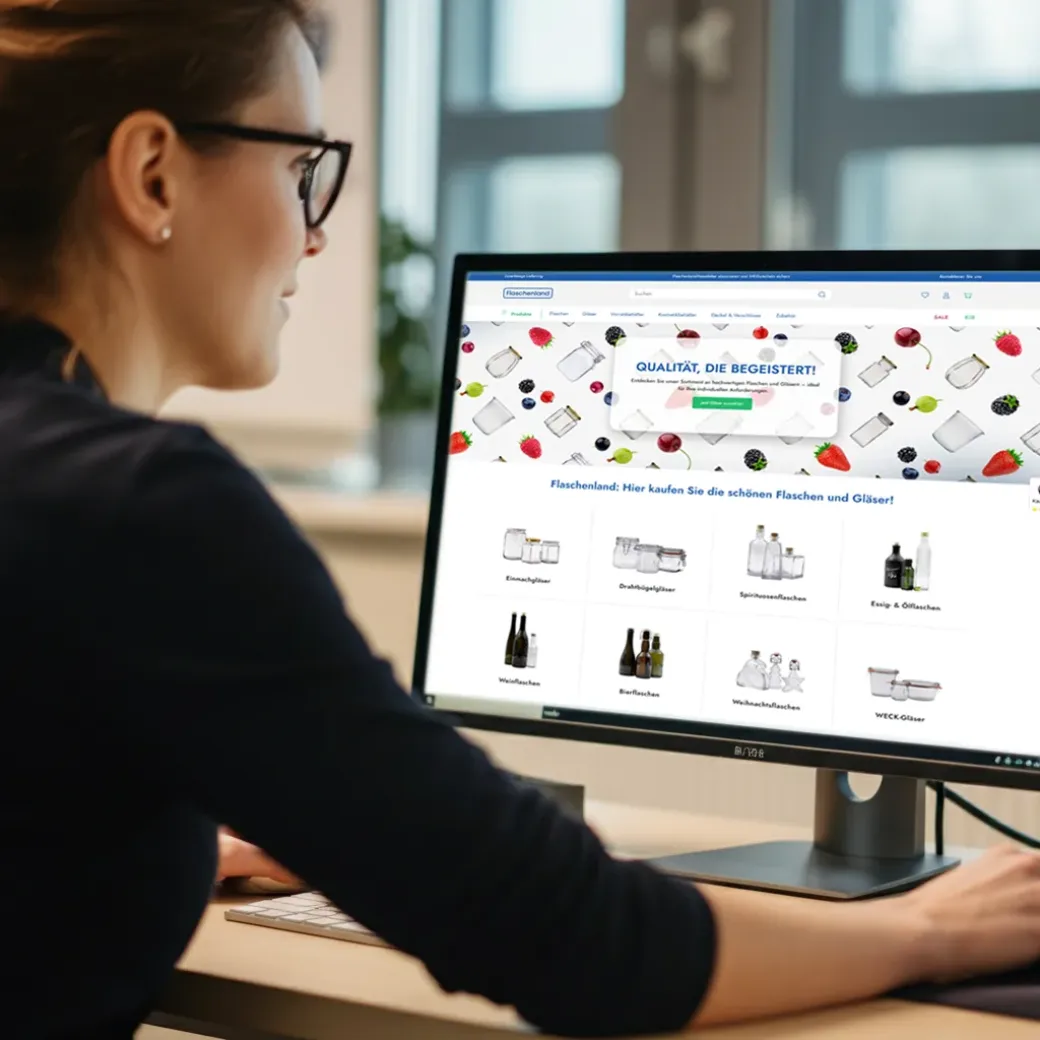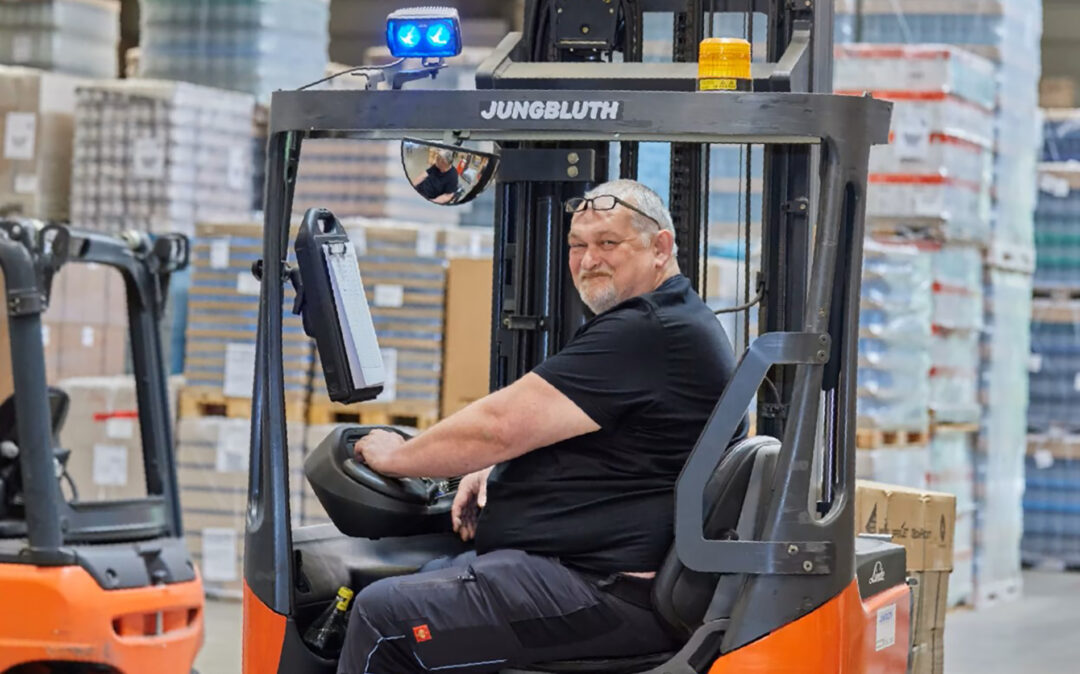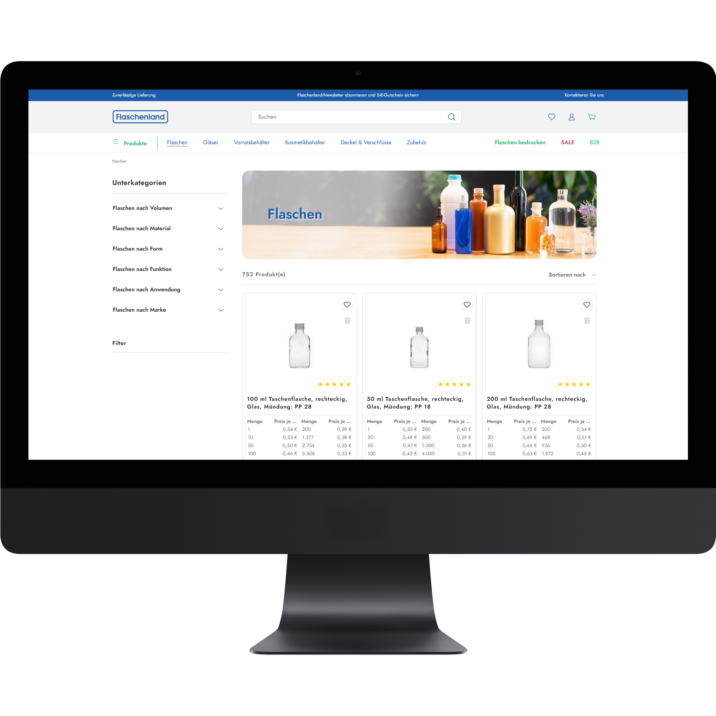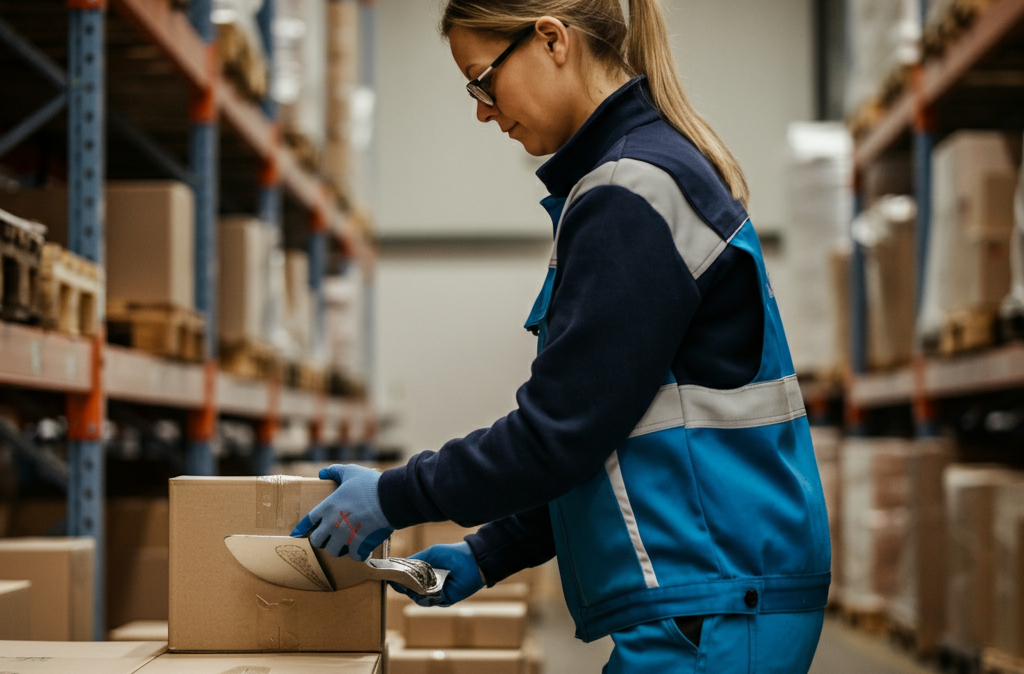Highlight

Successful together – our valantic Team.
Meet the people who bring passion and accountability to driving success at valantic.
Get to know usShop Relaunch & Strategic Rollout
Flaschenland, in collaboration with valantic, successfully rolled out its online business in 34 countries and positioned itself as a pioneer in its industry. Our success story shows how the specialist for packaging solutions in the food, beverage, and cosmetics sector achieved its strategic expansion goals and why this success required more than an agile, high-performance tech stack.

Flaschenland has made a name for itself as a specialist in packaging solutions for the food, beverage, and cosmetics sectors. For more than 20 years, the company from Westerwald has served both B2B and B2C customers through a shared web shop. Unlike other providers, both target groups can purchase not only large quantities from the extensive range but also individual items and small quantities – an enormous advantage, especially for medium-sized retailers, which Flaschenland recognized early on for its business potential: In 2005, the online business started with the first store in Germany and was continuously rolled out in other countries.

Internationalization of online business
Expansion into additional markets was a strategic decision for Flaschenland. This business goal required a powerful, scalable e-commerce system that effectively allows the integration of new country stores and is adaptable to market- and customer-specific requirements. Macro-economic differences in target markets posed various challenges for customizing the digital shops, ranging from preferred payment methods, different currencies, and tax rates to logistical processes such as price differences in shipping and transport.

To optimally position itself for further growth, the existing e-commerce system had reached its performance and scalability limits. With the goal of eliminating these growth obstacles, Flaschenland approached an agency with a requirements specification of about 300 pages. However, the agency could not cope with the complexity of the relaunch project – with consequences for the client’s online business:
A 15-month delay, significant additional costs compared to the plan, and a backlog of developments and features: This was the challenging starting point the company faced when it came to valantic at the beginning of 2023. The previous project resulted in additional challenges for the restart: Due to the strong seasonal business, Flaschenland was keen to fully leverage the benefits of the new tech stack within half a year.
Strategic rollout with valantic
During a two-month transfer phase, the project team from valantic and Flaschenland took ample time for onboarding and consulting. In joint workshops, a roadmap was developed for the structured relaunch and rollout of the shop system. This followed the principle of small steps: The primary goal was now to launch functional webshops in all planned target markets by the start of the season. To efficiently overcome recurring hurdles typical of internationalization efforts, the experts developed smaller, interchangeable modules from which customized solution packages can be built. With this, valantic created a blueprint that allowed Flaschenland to independently launch webshops in the targeted countries.
Following the relaunch in the three highest-revenue markets, additional countries, including non-EU states and accession candidates like the United Kingdom and Albania, quickly followed, where the rollout is usually particularly complex.
Through Shopware 6, Flaschenland established a scalable and high-performing foundation for the intended expansion of the company. The e-commerce system inherently supports multiple business models and provides the best conditions with its API-first architecture for making extensions and adaptations without additional development effort. These advantages are now fully utilized after the successful relaunch.

The adaptability of the tech stack ensures maximum flexibility and scalability of the online business. The open source platform makes it easy to connect additional stores, functions, sales channels, and third-party services. Flaschenland can react quickly to new requirements and drive business growth.
With the wide portfolio of features, plugins, and apps that Shopware 6 offers, many technological requirements were already met in the standard. Additionally, the API-first approach simplifies the diversification of web appearances in individual markets. The result:
The country stores are not mere duplicates with corresponding language modules, but “Native Shops” with their own domains, individual sales channels, and offerings. On the content and customer level, individualization has few limits: Both customer-specific prices and product descriptions and images can be tailored to specific countries.
Since system updates and adaptations do not require extensive backend interventions, Flaschenland’s IT team can largely independently set up, manage, and customize new country stores without relying on external resources.
The pragmatic approach of initially focusing on the standard functions of the shops provided the necessary speed and dynamics to quickly open up new revenue sources. The ability to quickly introduce new services and products increases the Return on Invest (ROI) and shortens the Time-to-Market.
After the relaunch, the tech stack is so powerful that Flaschenland’s product range can grow into it. Currently, the system manages 2,000 SKUs in each country. In the future, twice that amount will be easily possible. The system also supports efficient e-commerce across geographical boundaries: Both the country stores and logistical processes can be centrally managed and navigated from Germany.
The ability to independently manage the system saves external resources and improves cost efficiency. Easy handling facilitates uncomplicated maintenance and further development, keeping the Total Cost of Ownership (TCO) manageable.
With each country expansion, Flaschenland gains new sales opportunities in digital commerce to increase revenue and position itself as a pioneer in its industry.
Following the successful relaunch, Flaschenland and valantic are working to optimize the country shops for the requirements of their respective markets and customers through A/B testing and increase the conversion rate, including improving language levels and localization. As part of this, the product range will also be diversified according to demand. Additionally, the company plans to integrate innovative shop functions that are not yet available in Germany or other markets. All these steps contribute to Flaschenland solidifying its role as an innovator in the industry and continuing to offer outstanding customer experiences.
Would you like to set the stage for profitability and growth? Let’s talk!